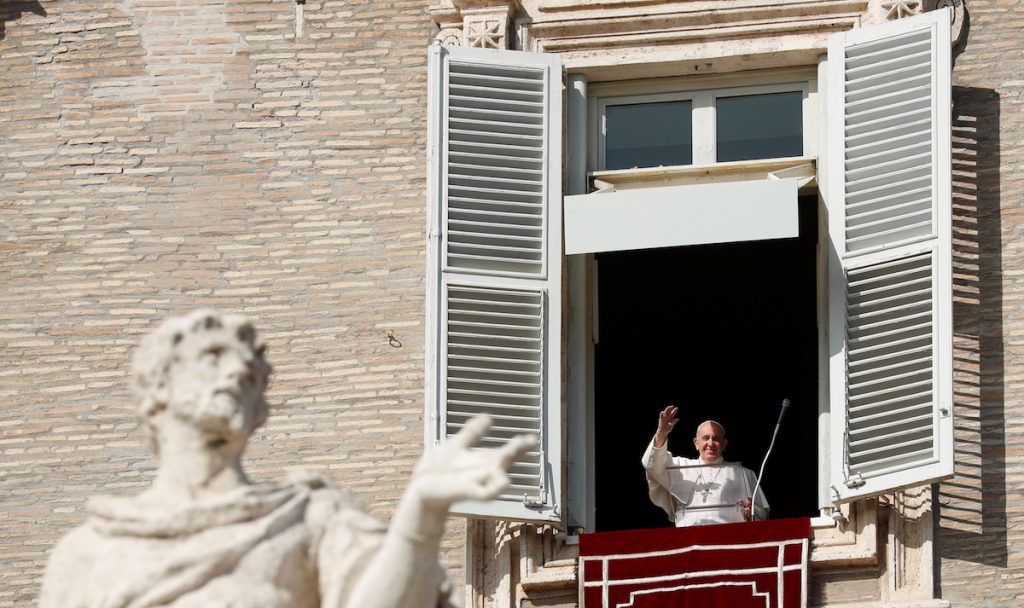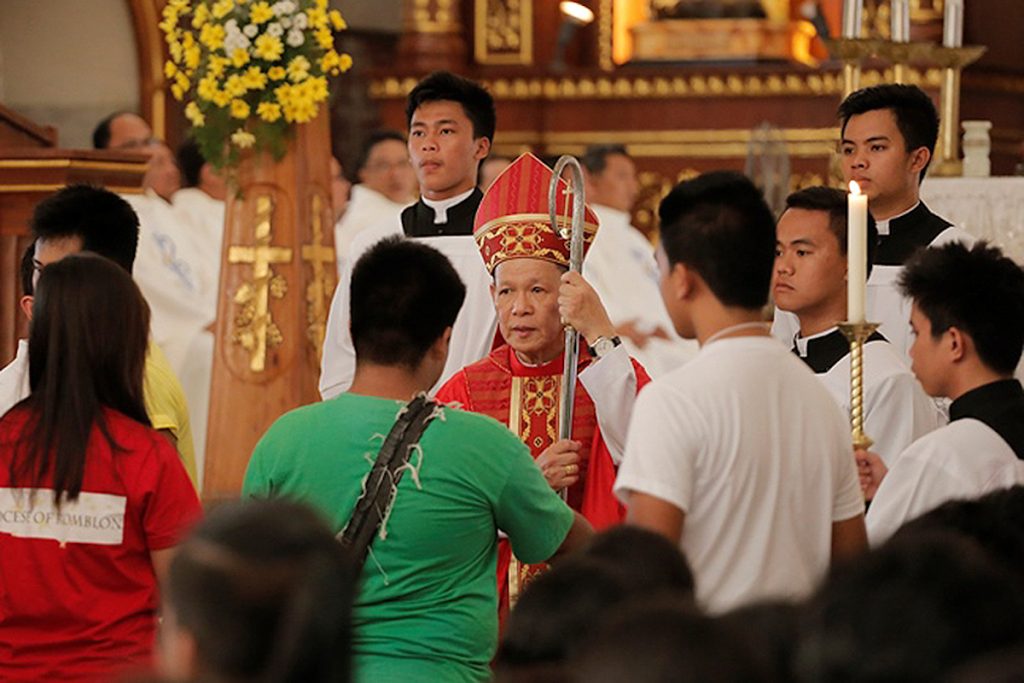Archbishop Jose Advincula of Capiz in the central Philippines said he had no idea that he’d be elevated to the position of cardinal which was announced by the pope on Oct. 25.
“My first reaction was maybe they had an error in communication,” Archbishop Advincula said.
The archbishop said there are at least three bishops on the island of Panay in the central Philippines named Jose. “Maybe they got the wrong surname,” he said.
Archbishop Advincula said he first heard the news from two priests who were with him before he received congratulatory messages on his mobile phone.
“I was surprised. I haven’t thought about it … Even the priests who were with me were very surprised as well,” he said.
“My initial reaction is the fear of that responsibility. If there is that feeling of joy, it’s very small because my feelings focused on the responsibility that is given to me together with this appointment,” he said.
Archbishop Advincula is among the 13 cardinals appointed by Pope Francis to help in his “task as bishop of Rome for the benefit of the holy people of God”.
At 68, the prelate is among nine new cardinal electors because four of those appointed are over the age of 80 and do not have the right to elect a pontiff.
Archbishop Advincula said his elevation to the College of Cardinals shows the recognition the pope offers to the people in his archdiocese.
“Maybe this is one way of the pope to acknowledge the faith of the people of the archdiocese,” he said.
“He may also have seen in different ways the efforts of the priests here in our archdiocese. They are working hard to plant the seeds of faith to the people in this part of the Church in the world,” added the prelate.
The appointments of the new cardinals will be formalized in a consistory, a meeting of cardinals, on Nov. 28.
Archbishop Advincula served as prelate of San Carlos for 10 years before he was appointed head of the Church in Capiz in November 2011.
He is currently the vice chairman of the Commission on International Eucharistic Congress and the Office on Women of the Catholic Bishops’ Conference of the Philippines. He served as former chairman of its Commission on Culture.

Gratitude to Pope Francis
Church leaders in the Philippines have expressed their gratitude to Pope Francis for the appointment of Archbishop Advincula.
They said it is a “blessing” to the Philippines and an “immense grace” to the Church amid the coronavirus pandemic.
Bishop Ruperto Santos of Balanga said the appointment of Archbishop Advincula “is an abundant blessing” and a worthy gift to the universal Church.”
He said it is a “sign of hope, source of joy, and moment of comfort” during the pandemic.
“We are grateful to our Holy Father and we accompany Cardinal Jose Advincula with our prayers and collaboration,” said Bishop Santos.
Bishop Honesto Ongtioco of Cubao said the appointment “is not just an honor but also the responsibility and duties that would go with this honor.”
“We assure [Cardinal Advincula] of our prayers and support,” he said.
Bishop Arturo Bastes, retired prelate of Sorsogon, said the appointment of Archbishop Advincula means “we now have another Filipino cardinal that can participate in the next conclave.”
“With Cardinal Advincula, the Philippine Church will have two cardinal electors,” he said.
Archbishop Advincula becomes the ninth Filipino cardinal, following Cardinals Orlando Quevedo, Luis Antonio Tagle, Gaudencio Rosales, Jose Sanchez, Ricardo Vidal, Jaime Sin, Julio Rosales, and Rufino Santos.
At 68, he is among nine new cardinals eligible to vote in a conclave. The four others are over the age of 80.
He will also be the fourth among living Filipino cardinals alongside Cardinals Rosales, Quevedo, and Tagle, the prefect of the Vatican’s Congregation for the Evangelization of Peoples.
Cardinals Rosales and Quevedo are over 80 and are no longer eligible to enter a conclave to elect a new pope.
Two of the new cardinals named by the pope work in the Roman Curia: The secretary general of the Synod of Bishops, Maltese Archbishop Mario Grech, and the Italian Archbishop Marcello Semeraro, former bishop of Albano and the new Prefect for the Congregation of the Causes of Saints.
The other new cardinals are Archbishop Antoine Kambanda of Kilgali, Rwanda; Archbishop Wilton Gregory of Washington, United States; Archbishop Celestino Aós Braco of Santiago, Chile; Apostolic Vicar of Brunei Cornelius Sim; and Archbishop Augusto Paolo Lojudice of Siena, Italia.
Pope Francis also appointed the current Guardian of the Franciscan Sacro Convento in Assisi, Archbishop Mauro Gambetti, a cardinal.
The four other cardinals, who are older than 80, are Archbishop Felipe Arizmendi Esquivel of San Cristóbal de Las Casas (Mexico); former Apostolic Nuncio Silvano Tomasi, former permanent observer at the United Nations in Geneva who then worked in the Dicastery for Promoting Integral Human Development; Capuchin Father Raniero Cantalamessa, preacher of the Papal Household; and the pastor of the Shrine of Divine Love, Father Enrico Feroci.
Cardinals wear the color red that indicates their willingness to sacrifice themselves “to the point of shedding their own blood,” in the service of the Successor of Peter.

Archbishop Advincula was born on March 30, 1952, in Dumalag town in the province of Capiz.
He was ordained priest on April 4, 1976 and was named Papal Chaplain of Pope St. John Paul II on March 19, 1997.
The pope later appointed him bishop of San Carlos on July 25, 2001. He was ordained bishop on Sept. 8, 2001. His installation took place on Sept. 11, 2001.
Pope Benedict XVI appointed him Archbishop of Capiz on Nov. 9, 2011. On Jan. 11, 2012, he was installed prelate of Capiz.
He finished his philosophy studies at St. Pius X Seminary in Roxas City in 1972 and his theology at the Central Seminary in the University of Santo Tomas in 1976 where he also studied Canon Law.






